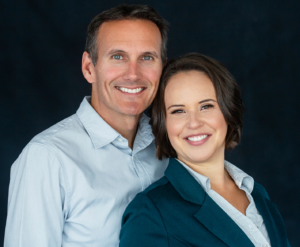WARNING!
If you don’t have time to read this blog with full attention right now, flag it so you can read it later because EVERY COUPLE needs to know this.
Tina here at Better Yourself 365 (BY365). Today I’m answering a VERY important and common question I get asked as a couples/marriage counsellor: ‘How do I know when it’s time to get professional help with my partner?’
I get asked that question because it IS CONFUSING to know if you should get help, and then even more confusing to know WHERE to get help, and WHAT KIND of help you need!
But today, I’m taking the confusion out of this topic, once and for all!
QUESTION 1: When Should I get help for me and my partner?
I sometimes have couples coming in to see me for therapy and it’s because of ‘One specific topic’ that causes hurt and problems in their relationship (e.g, a topic around parenting, in-laws, finances, infidelity, and many others, that causes both partners to stay locked in their positions and spiral into big arguments and disconnect).
But whenever I start enquiring about how their relationship was BEFORE this incident happened and this topic became an issue, I hear things like this:
- ‘Well, we had our share of arguments throughout the years, but isn’t that normal?’, or
- ‘Actually we NEVER fought before this, so we were doing really well we thought’.
HOW CONFUSING!
How can one couple think they were doing ok because they were NOT fighting/arguing, and one couple think they were doing ok because they WERE fighting/arguing?
Because if you’re looking at the presence or the absence of YOUR FIGHTS as the indicator of normalcy and your gage to know if you need professional help…
YOU’RE ACTUALLY LOOKING AT THE WRONG THING!
You should ask yourself this question instead…
Am I creating a breathing ground for RESENTMENT?
Because it’s resentment in the long term that destroys a relationship!
Trust, respect, partnership, responsiveness, engagement, and hope is ALL out the window in a relationship where resentment is gradually feeding.
Now resentment can be subtle and creep-in on us, so THIS is what you have to look out for:
- If you fight/argue, can you COME BACK and REPAIR from your fights and feel like your needs and feelings were tended to (there’s actual closure on the issue)?
- If you don’t argue, is it because you hold things in and try to let things go to avoid fights?
IF YOU ANSWERED YES TO ONE OF THESE QUESTIONS ABOVE…
Then you DO need help for your relationship.
Why? Because you are creating BREATHING GROUDS FOR RESENTMENT in your relationship and this does NOT get better with time…
If you don’t learn how to properly repair from your arguments/fights, or how to engage in the relationship and express your needs in a healthy way instead of putting them aside, it WILL GET WORSE.
And my experience in the last 18 years I’ve been doing couples therapy is that people WAIT TOO LONG to get help!
So many years of hurt, frustration, helplessness and loneliness could have been spared IF ONLY they would have come in to get help earlier.
So what stops people to come to get help sooner?
- Confusion around ‘If and when do we need help as a couple?’
- Not knowing where to go, OR agree on the kind of help to get (not everyone wants couples therapy, or has the time and money for it)
- Shame for having relationship problems (You don’t hear people talk about their relationship issues so you think you are the only ones with these problems- NOT!)
Hopefully this article shed some light on when you need to get help for your relationship.
Now let’s address the second question.
QUESTION 2: What kind of professional help is best for my needs?
This question used to be simple because all you had to choose as an option was couples counselling.
The tricky part was (and still is), making sure the counsellor you choose actually is trained in couples counselling.
You don’t come out of your graduate studies as a counselling therapist, psychologist or social worker already trained as a couples/marriage counsellor. THIS IS A SPECIALIZED AREA OF THERAPY and the person you see needs to have had additional training in this specialization.
There’s a lot of ‘relationship coaches’ out there and even therapists who have no training background at all in this field. This is a very sad reality because couples will often have negative experiences when they first access therapy because of this.
I’ve taken years of training in Emotionally Focused Therapy for Couples, which is a leading approach to couples therapy on an international level. It is evidenced-based and even though I’m Certified as a therapist and a supervisor in this approach, I STILL decide to take on-going training to further my skills yearly.
I do this ongoing professional development to perfect my skills because it’s crucial to me to give the best service possible to my clients, and because I believe there’s always room for improvement.
At some point through my years doing couples/marriage counselling, I realized that my services could benefit from adding an educational component for clients. It was the missing piece for couples to grow even faster in their knowledge and confidence to take ownership of their relationship happiness.
This is why my husband (Michael) and I have decided to create our Better Yourself 365 online business and offer MORE options for couples who need help.
Now you do have different ways you can access help for your relationship, so you don’t have to wait to access professional help and you can find different services to fit into your busy schedule.
The four options below are listed in order of how much time commitment is involved, and how costly the service is (from the least to the most).
Option 1- Books for Couples
There are soooo many different books written for couples out there, because it meets a demand! We all need a way to wrap our brains around our relationship with our partner and understand it better, because, let’s face it – LOVE CAN BE HARD ON THE HEAD!!
WHO IS THIS FOR?
- Books are for all couples! No one has a perfect relationship and everyone can benefit from learning more.
- Even if you’re not a “reader”, books are now offered in audio versions (We even developed a video version of our own book as a crash course option)
What better way to get quick information and start reflecting on our relationship than with a book! A lot of self-growth happens through the information we get through books that helps us change our perspectives, and hence, change our actions. Not to mention the important fact that books are easily accessible, and the least expensive way to get help for your relationship.
It’s for those reasons that Michael and I decided to write our own book called The 10 Habits of Happy Couples. We had to work hard on our own relationship through the years to build and re-build connection, and we wanted to offer a book that guides other couples on how to create and maintain their own loving relationship.
We know couples like us have an extremely busy lives, and prioritizing the relationship is not always easy. Through our book, we wanted to show couples that it is possible to unhook from negative communication patterns, understand and resolve arguments, develop a deeper connection and grow as a team, in spite of how busy you are.
Option 2- Online Training Programs for Couples
You’ll find different options for this online, but our version at BY365 is called ‘Taking Charge of Your Relationship’. And it’s a 16-hour course that includes 4 modules with pre-recorded training videos that Michael and I did (10 hours of videos & 6 hours of couples exercises). The 8 built-in exercises we created will help couples have important conversations, deepen your connection and improve your communication.
Online courses is something that is a newer option for couples to access, and the beauty of it is that it can be fit into any schedule, since it’s self-paced. Couples need to be disciplined enough to commit to booking time out of their schedule to work through the program if they want to do it together and get the most out of it though. But even 30 minutes a week of working through a couples training program can make significant changes in a relationship.
Another advantage of online training is that it can be used by ONE partner only, if the other partner is initially more resistant to seeking help. Of course this is not the ideal situation since both partners need to be engaged in order to make sustainable positive changes in a relationship. However, the training videos can be started by one partner, and that partner can benefit from new insights that they can creatively bring-in to the other partner at some point to try to get buy-in to complete the training together.
WHO IS THIS FOR?
Because it’s self-directed, it’s best for the following couples:
- If you want to do some relationship work on you own before deciding if you need more help;
- If you are waiting for couple/marriage therapy but still want to start to make changes in your relationship NOW- this can help you build a strong foundation before accessing deeper help in couple/marriage therapy (and not take as long in therapy);
- If you can’t afford a weekend retreat for couples, or couples counselling, but still want to improve the connection in your relationship; and of course,
- If you want to prevent problems from happening in your relationship and ensure lasting love.
Please note: If your interactions with your partner are frequently escalated (daily), then you might have a challenge completing the online exercises on your own without support. In that case, the next 2 options might be best for you.
Option 3- Weekend Retreat for Couples
Again, there are many versions of this available in person and online, and the goal is typically to get away with your spouse somewhere for a weekend and really focus on prioritizing the two of you. It’s more than just a “vacation” though, it involves learning more about each other and your relationship needs. It can often jumpstart the process to recommitting to each other and to prioritizing your relationship and act as a tune-up.
Our BY365 weekend retreat for couples is based on the principles we teach in our book for couples and it’s called “10 Habits of Happy Couples Weekend Retreat”. This option includes a full weekend with your partner LIVE with us, so you get our support to navigate your exercises you do as a couple. The teachings and exercises in the weekend retreat are there to create a positive connection in your relationship and help you be more attuned to how to better practice the 10 Habits of Happy Couples ©
The advantage of the weekend retreat over the online self-paced training is that you are not alone in the process; we are there live to help you work through any challenges that may show up. Plus, you get to be in a setting where a whole weekend is devoted to just the two of you – absolutely no distractions! Wow! How sweet is that ☺
WHO IS THIS FOR?
Because it’s an intensive weekend, it’s best for :
- Couples who need a quick boost in their relationship – a way to get recommitted and prioritize your relationship.
- Couples who feel they need external support from a therapist, but don’t necessarily need long term therapy
- Couples who had a set-back in their relationship and need a powerful way to regain their connection
Please note: If your interactions with your partner involve volatility (physical or verbal aggression, and-or contempt), then you need more individualized attention. In that case, couples counselling would be the only option for you.
Option 4: Couples/Marriage Counselling
As mentioned earlier, not every said ‘couple therapist’ is actually qualified to do couple therapy, so be careful with that.
This option typically includes weekly or bi-weekly sessions with a therapist, in person or online through video-conferencing. A typical counselling process can last anywhere between 6 months to a few years, depending on how regular their sessions are, and how much trauma stemmed from the relationship.
I created a personal approach to couples/marriage counselling that is a bit unique, in order to maximize outcome in a shorter period of time. Couples sign up with me for a Basic 5-month intensive couples counselling program that ALSO will include an educational component that couples complete in between our counselling sessions (a series of training videos and exercises to complete together). And then if the couple needs more help after this, they can sign up to work with me for an additional 5 months in my Advanced couples counselling program.
The end goal of couples counselling, at least through an Emotionally Focused Therapy lense (the approach I use), is to help couples see the negative pattern they are stuck in and help them step-out of it in a way that brings understanding, compassion and closeness. The therapist helps the couple identify their blocks and helps them get to a deeper place to access unacknowledged emotions and needs, and express these in a healthy way to their partners. The partner is also supported in responding to these needs in a way that provides safety and comfort for their partner.
WHO IS THIS FOR?
Because a typical counselling process is the most time consuming and expensive option, it’s best for:
- Couples who really need or want to have individualized help
- Couples who have the financial means to pay for this service because it usually requires weekly or bi-weekly sessions for a longer period of time (although some services through government funded agencies have a sliding-scale fee depending on your income)
- Couples who have flexibility in their work schedule to attend regular sessions
- Couples who might be on the fence with staying in the relationship
- Couples who have a negative cycle that has created deeper hurts and wounds that have affected trust and need healing
- Couples where one or both partners have more complex mental health issues
So regardless of where you are in your relationship, there IS a way to get help that can meet your individualized needs. Or to get some help to simply grow your relationship and prevent bigger problems down the road.
The first step is just to DECIDE to get help. There is NO shame around this. Actually it’s a sign of strength to be focused on self-growth, and to see when you need some extra support to achieve your relationship goals.
Now let us quickly summarize the four options to get help for your relationship that we presented in this blog by highlighting the pros & cons of each in the table below.
| | PROS | CONS |
| Books for couples | -A way to gather lots of information and insights quickly -Easily accessible -Comes in different formats for different learners -Informs next steps and create hope -Low cost $$ | -No hands-on support (requires more self-discipline to complete) – Insights are created, but action might not be taken -Harder to create change if only one partner reads the book |
| Online Training Programs for Couples | -Easily accessible -Provides flexibility for busy schedules – self-paced -Engages both partners in understanding their relationship -Offers guided opportunities for new conversations with your partner -Leads to skill development and the creation of connection -Can be done individually and as a couple -Relatively low cost $$$ | -Requires time management to complete together as a couple -No hands-on support to navigate potential challenges – Some couples might still need therapy after completion |
| Weekend Retreats for Couples | -Lots of insights, connection and skills building in a very short time -Provides a boost of confidence and hope for couples -Benefit from hands-on support -Benefit from others’ experiences in the group -Offers opportunities for new conversations and understanding -Great alternative for someone with a busy schedule | -Not as accessible (Might have a wait time before the next weekend retreat offered) -Some may be less comfortable in a group setting -Some planning and preparation is needed -Cost $$$ – $$$$ (typically not covered by medical health plans) |
| Couples/Marriage Counselling | -The most hands-on, individualized service for couples -Professional support to work through blocks and help with emotional accessibility and responsiveness -No time restraint to reach your goal | -More time consuming (weekly or bi-weekly for months/years) -Harder to get buy-in from both partners -Not as accessible (wait lists for therapy is very common) -Cost $$$$ (Partially covered by most medical health plans) |
Hopefully this article helped clear up some of the confusion.
But if you need to talk with us further to make sense of this for your own situation and decide what is best for you, then you may want to book a free consult call with me (Tina LeBlanc).








